|

|
Think Again:
Being wrong won’t always be joyful. The path to embracing mistakes is full of painful moments, and we handle those moments better when we remember they’re essential for progress.
|
72 |
|
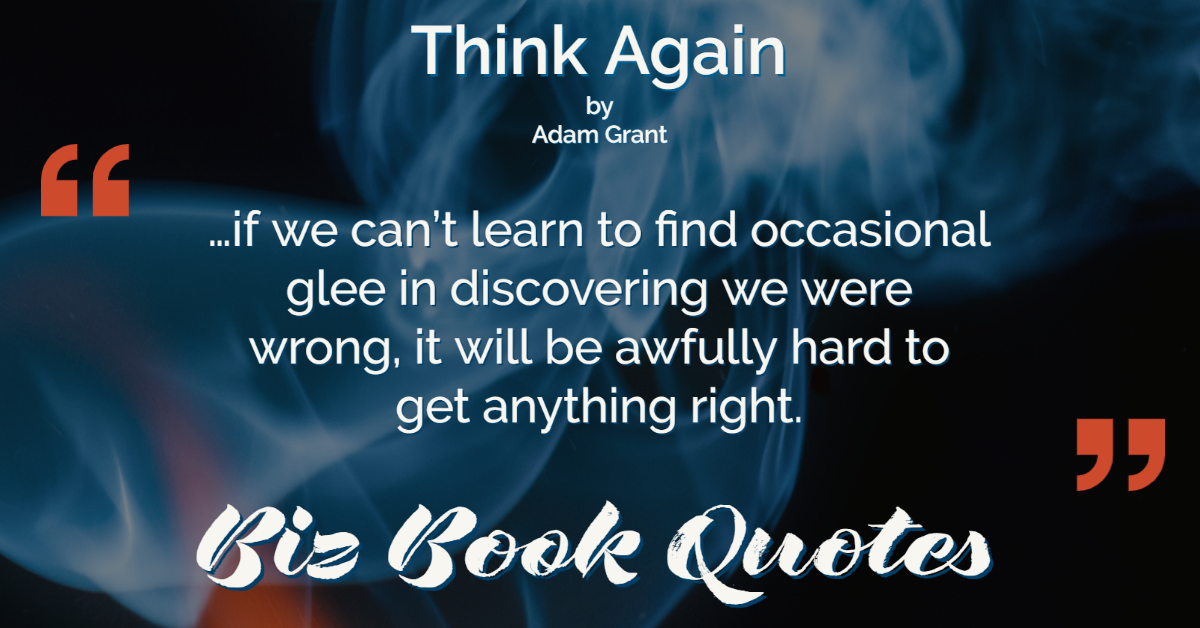
|
Think Again:
…if we can’t learn to find occasional glee in discovering we were wrong, it will be awfully hard to get anything right.
|
72 |
|
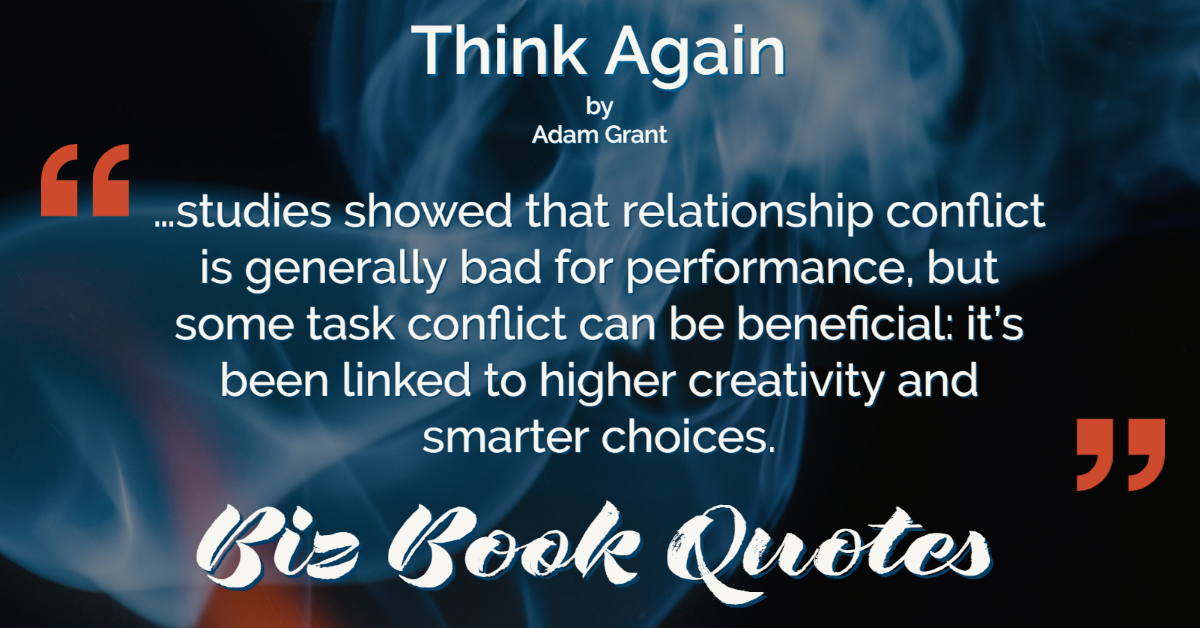
|
Think Again:
…studies showed that relationship conflict is generally bad for performance, but some task conflict can be beneficial: it’s been linked to higher creativity and smarter choices.
|
80 |
|

|
Think Again:
When a clash gets personal or emotional, we become self-righteous preachers of our own views, spiteful prosecutors of the other side, or single-minded politicians…
|
80 |
|

|
Think Again:
Task conflict can be constructive when it brings diversity of thought, preventing us from getting trapped in overconfidence cycles. It can help us stay humble, surface doubts, and make us curious about what we might be missing.
|
80 |
|
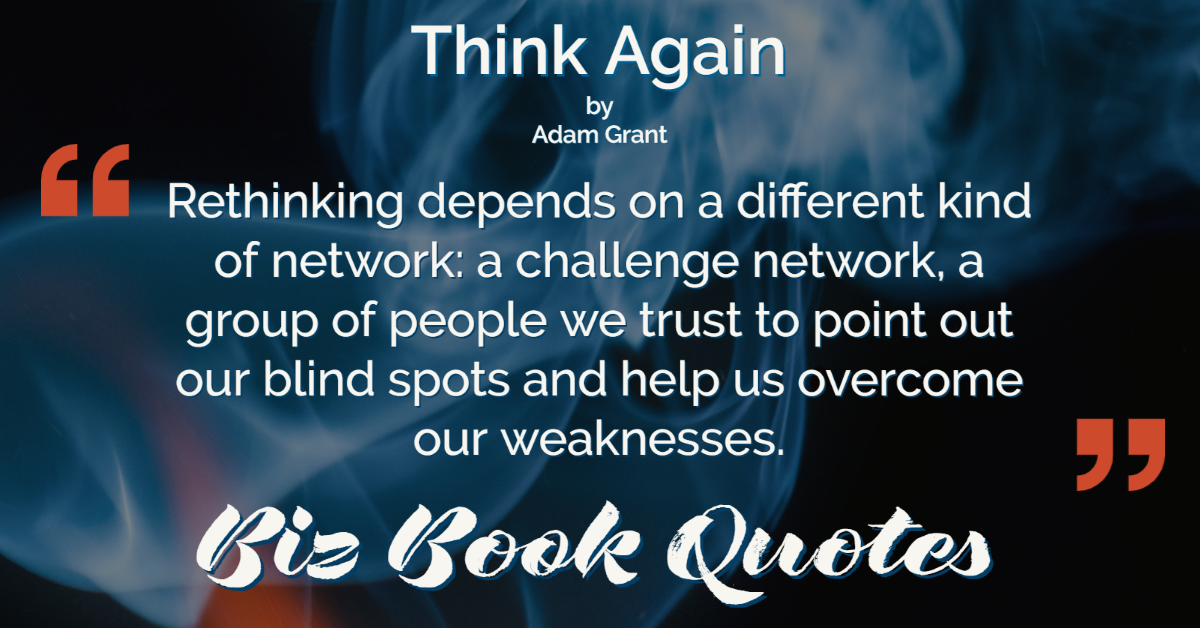
|
Think Again:
Rethinking depends on a different kind of network: a challenge network, a group of people we trust to point out our blind spots and help us overcome our weaknesses.
|
83 |
|

|
Think Again:
The ideal members of a challenge network are disagreeable, because they’re fearless about questioning the way things have always been done and holding us accountable for thinking again.
|
83 |
|
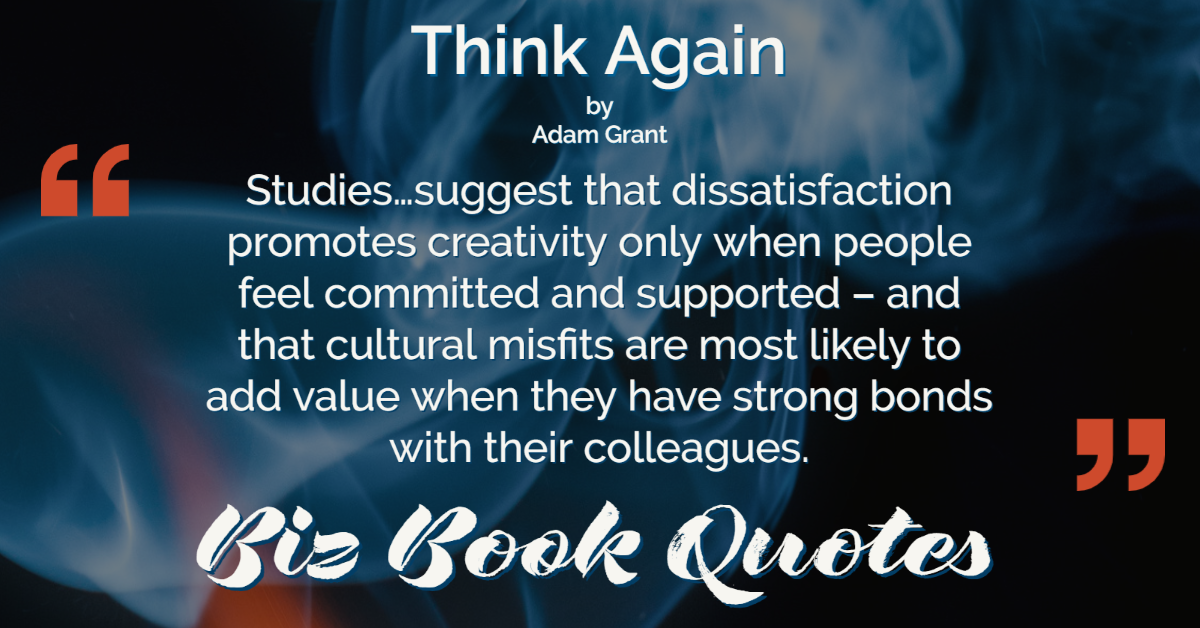
|
Think Again:
Studies…suggest that dissatisfaction promotes creativity only when people feel committed and supported – and that cultural misfits are most likely to add value when they have strong bonds with their colleagues.
|
84 |
|
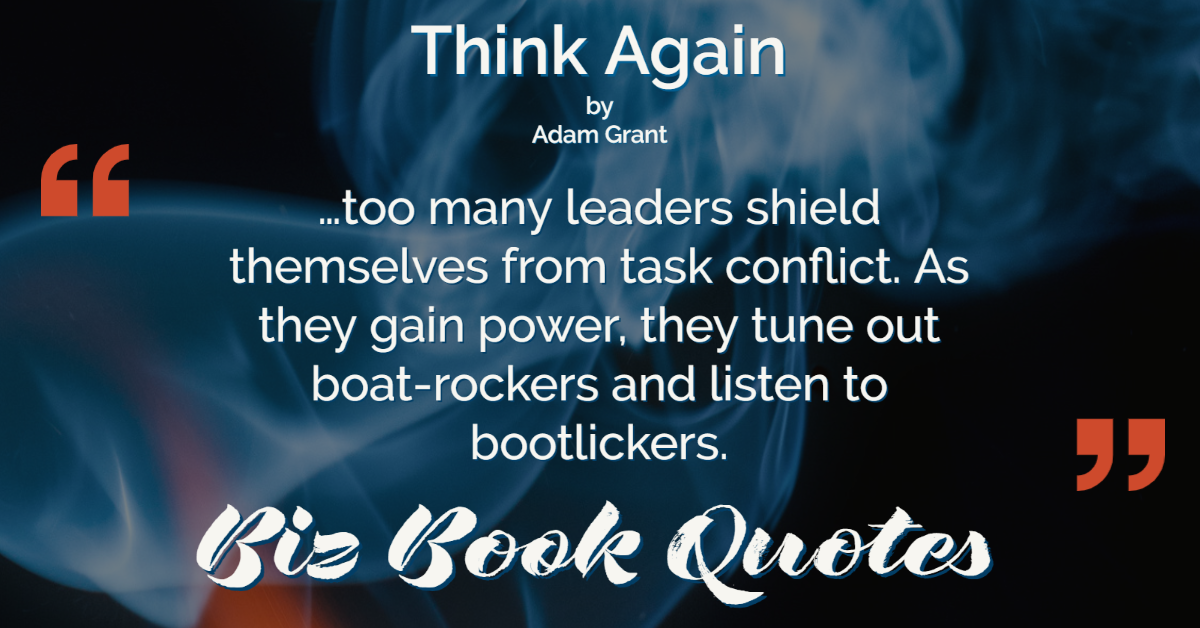
|
Think Again:
…too many leaders shield themselves from task conflict. As they gain power, they tune out boat-rockers and listen to bootlickers.
|
85 |
|

|
Think Again:
Disagreeable givers often make the best critics: their intent is to elevate the work, not feed their own egos. They don’t criticize because they’re insecure; they challenge because they care. They dish out tough love.
|
87 |











